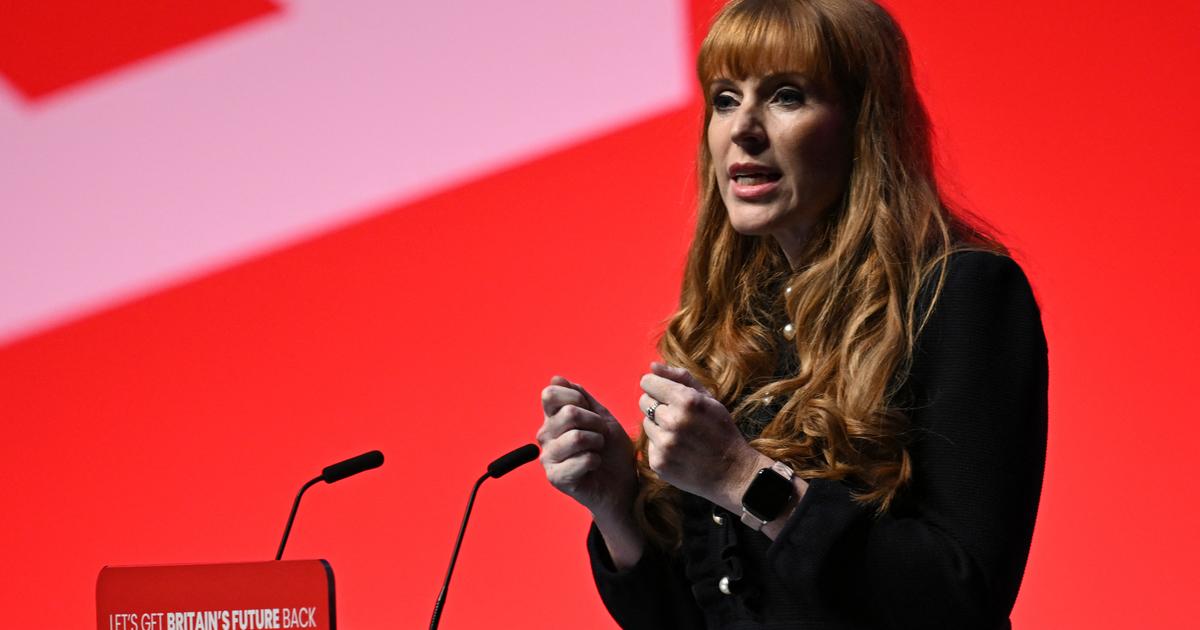Élisabeth Borne, the new French prime minister, had been walking through an open-air market in Normandy for more than an hour on Friday when two teenagers approached her and asked her about her work.
She patiently explained to them the functions of the head of government and the mechanics of the legislative elections, which are held in two rounds this Sunday and the next.
Borne, after the brief introduction to politics class, asked the teenagers: "Is politics a job that tempts you?"
Borne (Paris, 61 years old) knows the trade like few others: he has spent decades in the engine room of senior administration.
Politics, understood as public management, has no secrets for her.
But there is another policy, very different from the first.
It is that of controversies and declarations, that of the raw struggle for power.
And that of the campaigns.
And there, the prime minister barely takes her first steps.
The legislative elections are her electoral baptism.
She has never held an elected position.
Following the prime minister for a whole day in her first electoral campaign allows you to see two Bornes in action.
The technocrat and the candidate.
The veteran manager and the newcomer in electoral politics.
The leader listens and asks more than she speaks.
After each conversation, she asks her advisers to write down the phone numbers of these people to deal with her complaints.
She never asks for the vote.
A man who sells cider in the market of Vire, a municipality of 17,500 inhabitants, gets confused and calls her “Mrs. Lagarde”.
The man complains that in the town where he lives, in another part of Normandy, the Treasury office and other public services have been closed.
A woman who sells leather goods tells Borne: "Let's hope the fuel goes down."
The woman, who spends the week moving from market to market, used to spend 70 euros per week to fill the tank;
now, 95. Another woman, who uses crutches, tells the prime minister that a few months ago she was fired from the fast food restaurant where she worked and that she now receives a subsidy of 600 euros a month: “How am I going to live with this? ”.
Borne is not spontaneous, nothing to do with the typical candidate who hugs babies.
She does not excite, nor does she make us dream.
She does not arouse hatred, like the president, Emmanuel Macron, but even less passion.
She applies methodically, yes, in search of votes, without rest.
Not surprisingly, in the ministries where she worked, she was nicknamed
borne-out
, a pun on the English expression
burn-out
.
Borne, hyper-demanding, exhausted her teams.
“Do you organize events?
What sells the most?”, he asks, in the early afternoon, two booksellers in Verson, a town of 3,500 inhabitants in the so-called Norman Switzerland.
They recommend a book called
A Worldly Guide to the Peoples of France
, in which Verson appears – the great Senegalese poet and statesman Léopold Sedar Senghor retired and died here – and she adds: “Come on, we bought it”.
In the morning he visited Vire which, like many towns in the Norman department of Calvados, was devastated by Allied bombs during the 1944 landings. The mayor, Marc Andreu Sabater, is the grandson of a Catalan who arrived here in the 1920s.
The grandfather died under the bombs.
His son—the mayor's father—never spoke to his children about his origins.
Élisabeth Borne rarely talks about her family.
Her mother, Marguerite, was from Calvados.
Her father, Joseph, was born in Belgium into a family of stateless Jews from Poland.
Their last name was Bornstein.
Before the advance of the Nazis, in 1940, the Bornsteins moved to France.
They were persecuted by the anti-Semitic and collaborationist regime of Philippe Pétain.
Joseph and his brother Isaac entered the resistance.
They fell into the hands of the Gestapo.
They were deported, with the father and another brother, to Auschwitz.
Only Joseph and Isaac survived.
They never spoke of it again.
Joseph married Marguerite and converted to Catholicism.
They had two daughters.
He set up a business that went wrong.
He suffered from epileptic seizures.
In 1972, at the age of 49, Joseph Borne jumped out of a window.
”He had multiple reasons to commit suicide”,
Isaac would explain years later in an interview with public television.
"But I think he couldn't stand Auschwitz."
His daughter Elisabeth was 11 years old.
As an orphan of a deportee, she was recognized as a Pupil of the Nation, a title by which France adopts children of those who have fallen in war or victims of terrorist attacks.
The State paid for her studies at the highly selective Polytechnic School to be a Bridge and Road Engineer.
"When you have a difficult life journey," she explained in one of her first speeches as prime minister, "and not very pleasant things happen to you in your personal life, science and logical things have their reassuring side."
Borne made a career in public service and in cabinets and socialist ministers and prime ministers.
And with her Macron she was Minister of Transport, Ecology and Labor.
When the president appointed her on May 17, he sent a message to progressive voters who accuse him of having gone to the right and who, in the legislative elections, are tempted by the leftist coalition led by the eurosceptic and anti-capitalist Jean-Luc Mélenchon.
On Friday, during a break in the campaign in Normandy, he declared to EL PAÍS: “[Mélenchon] has nothing to do with a social democratic left, where I come from, but it is a project far from reality that considers the company as an enemy, and this is not how we will help the French to have a job or those who are in difficulties to get ahead.
The prime minister is risking her future.
If she loses in the legislative elections, she will have to leave office and will go down in history as
Borne, the brief
one .
But her polls are favorable to her.
And she, the technocrat, is gaining practice in campaigning.
The adolescents who were asked if they were tempted to dedicate themselves to this profession answered that they were not, but that they had a friend, Roméo, who is going to study Political Science and dreams of being president.
"Can you record a message for him?"
One of them brings the mobile closer to the prime minister and she dedicates this message to him.
—Roméo: It is a very good decision to commit to politics.
In general, we need young people to commit to the country.
In times of record abstention, even greater among young people, politics still makes us dream.
Follow all the international information on
and
, or in
our weekly newsletter
.
50% off
Exclusive content for subscribers
read without limits
subscribe
I'm already a subscriber

/cloudfront-eu-central-1.images.arcpublishing.com/prisa/BOA6P4XADPNIDVKKG3MH27ZJT4.jpg)






/cloudfront-eu-central-1.images.arcpublishing.com/prisa/RJECWNQSME4ZC4AJX4NFKPPWMY.jpg)





